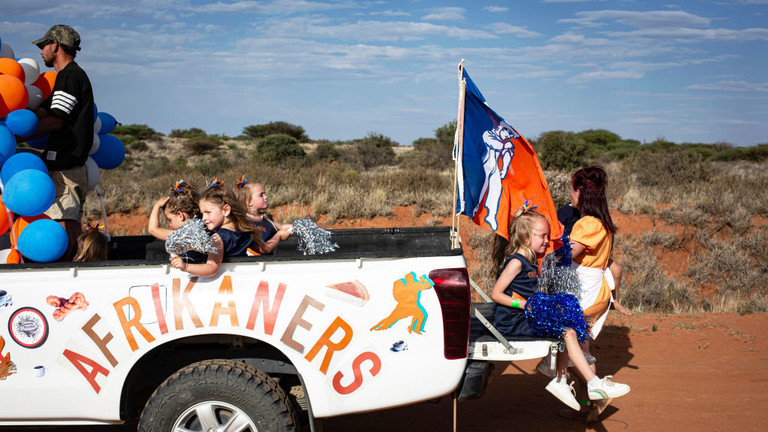Africa
White South Africans Decline Trump’s Refugee Resettlement Offer

White South Africans have reportedly rejected former US President Donald Trump’s offer for refugee resettlement, citing various concerns.
Several prominent Afrikaner organizations, such as AfriForum and the Solidarity Movement, have declined an offer from U.S. President Donald Trump to relocate to the United States as refugees. They emphasized their dedication to staying in South Africa.
The proposal was included in an executive order signed on Friday. This order also halted US financial aid to the country due to concerns about land expropriation policies and South Africa’s legal action against Israel at the International Court of Justice.
“We have no intention of relocating, nor will we ask our children to move to another country. We are committed to safeguarding the interests and cultural heritage of future generations, which cannot be preserved elsewhere,” stated Kallie Kriel, CEO of AfriForum, at a media briefing in Pretoria’s capital.
Flip Buys, chairman of the Solidarity Movement, has expressed a similar view, highlighting that although Afrikaners may disagree with the ruling African National Congress (ANC), they remain committed to their homeland and do not see themselves as needing refugee status.
The South African government has expressed criticism of the US executive order, describing it as misleading and founded on misinformation. Officials highlighted that Afrikaners are still one of the most economically privileged groups in the country and rejected claims of state-sanctioned discrimination against them.
Afrikaners are the descendants of European settlers, mainly from the Netherlands, who settled in what is now South Africa during the 17th century. Following South Africa’s transition to a multiracial democracy in 1994 and the conclusion of decades-long apartheid rule, white farmers maintained control over most agricultural land. The South African government has set a goal to reallocate 30% of farmland to black farmers by 2030.
South Africa’s Department of International Relations and Cooperation pointed out that U.S. assistance to the country mainly supports HIV/AIDS prevention programs, and they characterized the resettlement provision as being at odds with the broader immigration policies of the U.S. government.
President Cyril Ramaphosa has recently enacted a law permitting land expropriation without compensation under conditions considered just and fair, with the goal of addressing historical disparities in land ownership that originated during the apartheid era. This legislation has been contentious, as critics caution about possible economic consequences and international criticism.
Despite the political tension, Afrikaner groups have emphasized their commitment to finding solutions within the country rather than backing sanctions or pursuing international intervention.
“Our commitment is to seek solutions at the local level. Afrikaners desire acknowledgement as a community in their homeland, not special privileges,” Kriel emphasized once more.
